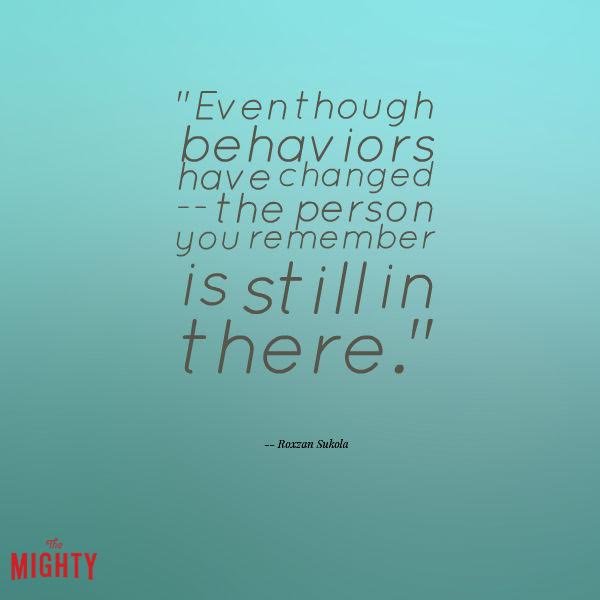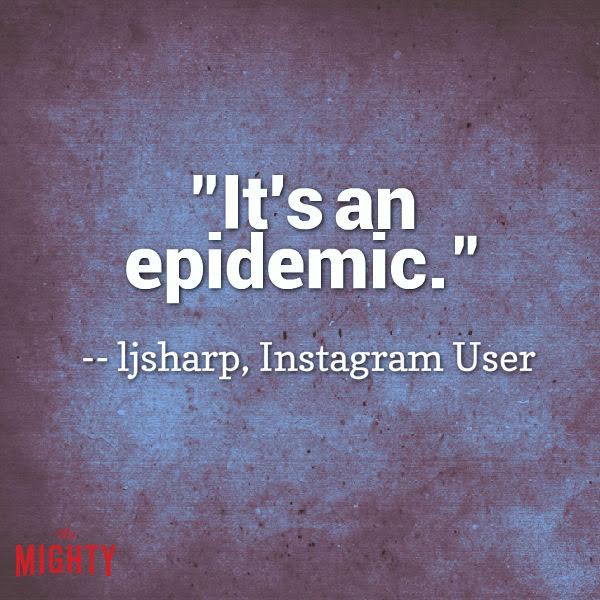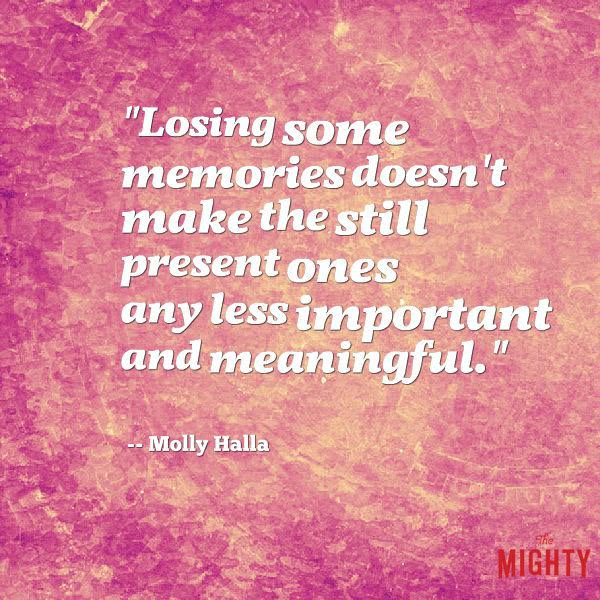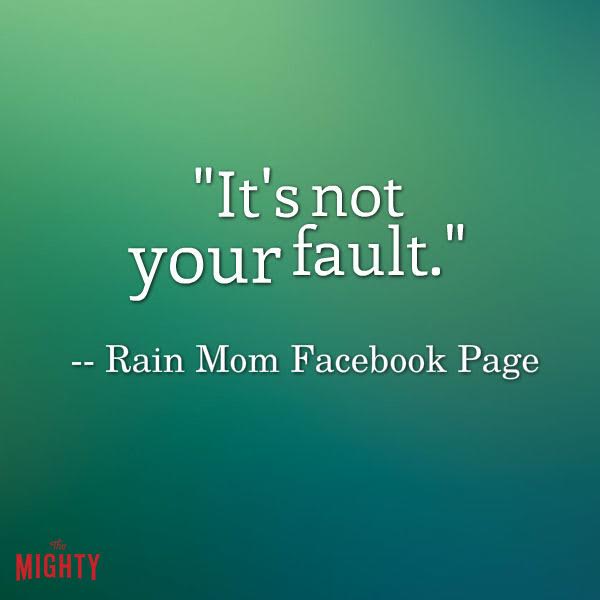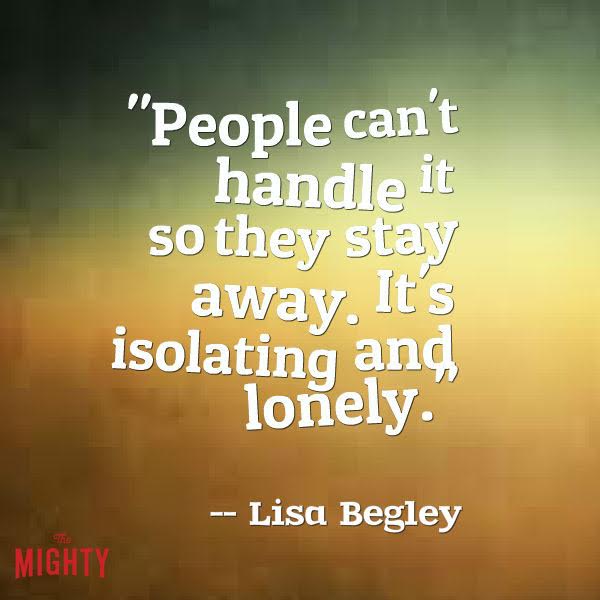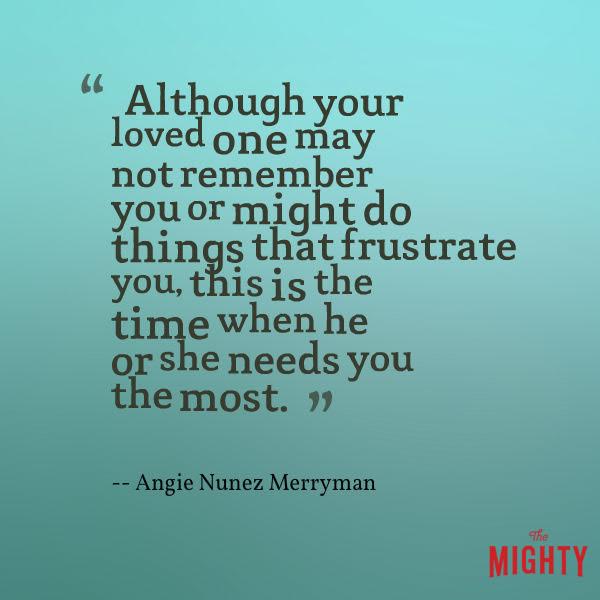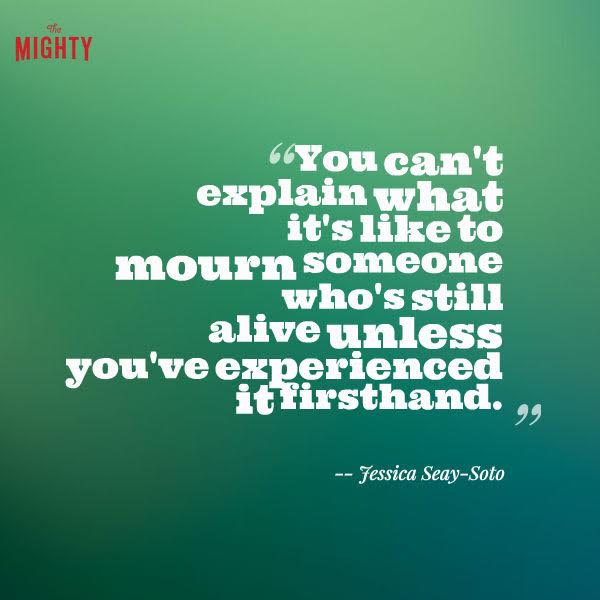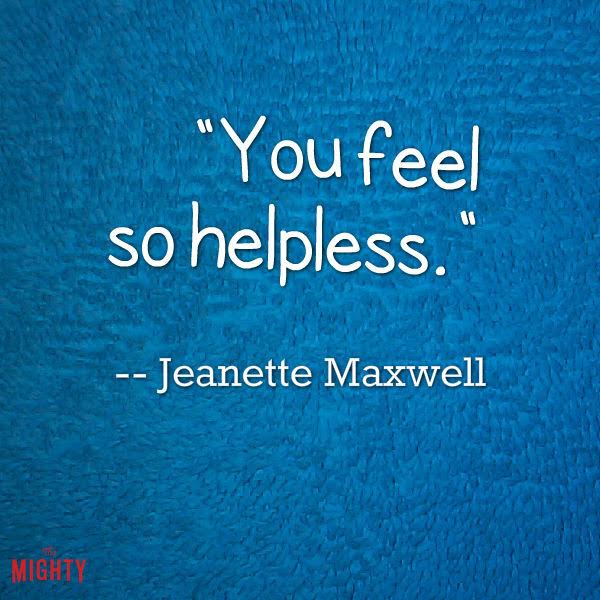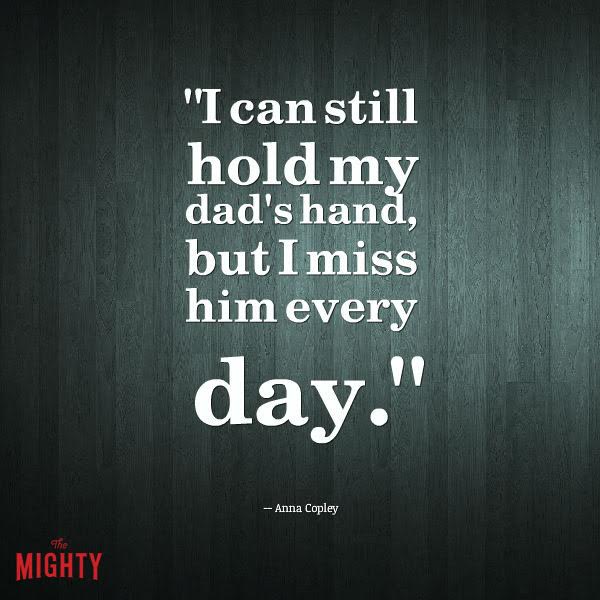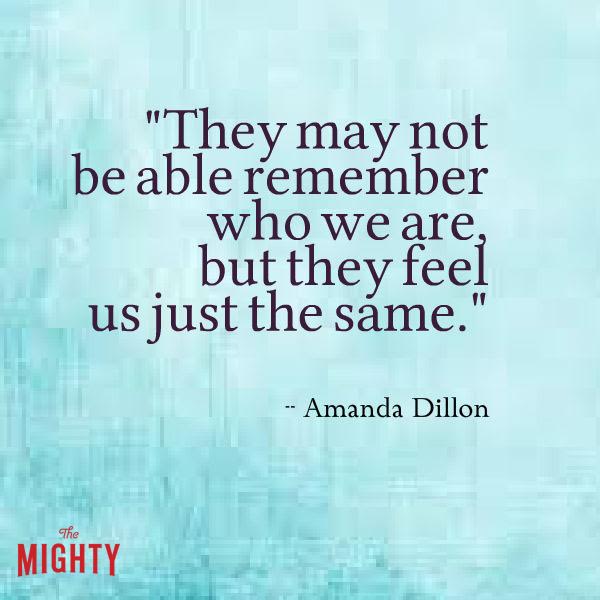Cleaning up my desktop. All good to share so doing so at one time!
FOR GREGORY. He was not a VICTIM of ALZHEIMER'S DISEASE, he was a HERO!
PLEASE NOTE: Even though this blog is now dormant there are many useful, insightful posts. Scroll back from the end or forward from the beginning. Also, check out my writer's blog. Periodically I will add posts here if they provide additional information about living well with Dementia / Alzheimer's Disease.
Monday, August 31, 2015
Sunday, August 30, 2015
Poetry
If you are interested, I have available for purchase two self-published books of poetry in which many of the poems are informed by Gregory and my journey with Dementia/ Alzheiemr's. See the side bar of this blog for a direct link to "peek inside" and/or to purchase.
Thanks, Michael
Forgetting
In response to a recent blog (Click here to read. Opens in a new window.) by fellow blogger Kate Saffer I wrote:
Wow Kate. This blog hit home several times. Forgetting vs Being Forgotten. Anticipatory Grief vs Phobia. During the last very difficult year of transition for Gregory, I never once asked him to tell me my name. I was so afraid he would not remember. Your are right. Anticipatory grief. Eventually, I think I asked for name verification only once and he failed. I refused to ask again because I am terrified of the results.
Recently when I arrive for my daily visits, he will look at me a little longer before recognizing me but then again he has had trouble focusing on things for maybe a year or so. So I stand at what I have learned to be the correct distance, I speak loudly (which I usually do, being used to teaching a classroom of 200 :-), and sometime repeat, “Hi. It’s me! Hey I’m here! I love you! Look at me!” Sometimes I will say “Look at me in the face,” sometimes twice or three times and he will be able to eventually do that and he will smile at my presence.
Sometimes I realize that he is too distant in contemplation and instead of forcing him to respond, I either come back later. Sometimes I shower him with kisses and either he receives them, waves them away, or ignores them. Having acted however, I feel successful in having announced my arrival.
More often than not he gets very exited to see me, he laughs, or reaches out for a kiss and hug. Once in a while (I usually melt when this happens) he will say something like, “Oh my Michael. My Michael.” That is enough for me.
Being a teacher of young children, you get used to not getting reinforcement for the work you do, rarely do you discover what your efforts turned into. So you get used to giving yourself compliments, knowing when you did a good job, sometimes knowing when you failed and trying to learn from it, but basically learning how to self reinforce. You get used to never seeing a finished product in your student. So that ability I have developed helps with Gregory, I do a lot of self reinforcing. In fact when others reflect on “how good I am” I get embarrassed.
Kate's blog was prompted by another Dementia/Alzheimer's blog at https://frangipanisingaporenicum.wordpress.com
Kate's blog was prompted by another Dementia/Alzheimer's blog at https://frangipanisingaporenicum.wordpress.com
Saturday, August 29, 2015
Batia
Today our dear friend Batia passed. She had been at Lieberman for three, maybe five years and Gregory and I knew her for the last 20 months. She was one of Gregory's table mates, we also got to know her two daughters Ruth and Naomi and her son John. She handled her Dementia/Alzheimer's with grace, with love, and with humor. She continued to be intelligent, wise, funny with a dry sense of humor, and to make profound pronouncements when least expected. She will be missed. As Gregory says, "We are happy for Batia having 'found her way out' while we are still looking for ours."
Friday, August 28, 2015
Dear Blog Readers
Over the life of this blog since June 2010, the number of readers has been growing exponentially. I just wanted to take the time to say THANK YOU and to say that I hope by joining our journey (often or periodically) and that hearing about Gregory and my experiences are able to support you on your journey. I hope that they help you to realize that YOU ARE NOT ALONE, whatever your sorrows and joys may be.
In many ways the fact that Gregory and I are a same sex couple seems to disappear as you realize that ours is a story of two people in love, family friends or whomever, who care for each other and have been journeying through Dementia/ Alzheimer's on what often seems like a run-away roller-coaster ride, "The Three R's."
Having said that, however, I also need to say that in my research on the internet I find that there is very little, if nothing, out there dealing with GLBTQ couples who are dealing with the issue of living with Dementia/ Alzheimer's or loving someone who is living with it. That makes me sad and seems to make my work at blogging all the more important.
Finally, I would ask you to share the blog's address with anyone and everyone who you think might benefit from Gregory and my journey and to comment now and then if only to say, "Hi. We are out here!"
Thanks and Namaste,
Michael and Gregory
In many ways the fact that Gregory and I are a same sex couple seems to disappear as you realize that ours is a story of two people in love, family friends or whomever, who care for each other and have been journeying through Dementia/ Alzheimer's on what often seems like a run-away roller-coaster ride, "The Three R's."
Having said that, however, I also need to say that in my research on the internet I find that there is very little, if nothing, out there dealing with GLBTQ couples who are dealing with the issue of living with Dementia/ Alzheimer's or loving someone who is living with it. That makes me sad and seems to make my work at blogging all the more important.
Finally, I would ask you to share the blog's address with anyone and everyone who you think might benefit from Gregory and my journey and to comment now and then if only to say, "Hi. We are out here!"
Thanks and Namaste,
Michael and Gregory
Thursday, August 27, 2015
Goings and Comings
Yesterday Ivanka, our housekeeper of 8+ years who is returning home to Bulgaria, and I visited Gregory so she could give him her love one last time. In many ways it was painful because he just stared at her, with what I interpreted as a frightened face as in "Am I supposed to know this woman?"
Often when Gregory gets a visitor he is more engaged and often will comment something like, "Oh you!" or "Wow." With Ivanka, nothing. Just stared at her then looked away then stared again and again looked away.
I could tell that Ivanka was sad, more at who Gregory is now days since she watched his decline through almost the entire period since his diagnosis. She has become family to us and over time we helped her through the loss of her husband, her brother, her nephew, and finally her mother.
I too was sad at her leaving but tried to stay cheerful and up. As we were leaving the condo to go to Gregory's, she proceeded me out the door and in a gesture which I had not seen before she crossed herself. I could feel her blessing fill the condo and her entreaty to her God to protect both Gregory and me. This is a very good woman and I will miss her very much.
Today Halina, our housekeeper from some 20+ years ago, with a 10+/- year hiatus due to her being stuck as a pedestrian by a car causing her to not be able to work for us, visited Gregory with me.
She will be back as my housekeeper now that Ivanka has left and she will also be a caregiver to Gregory for 2 or 3 days a week in addition to Manny who needs some time off because this type of work his not easy! I feel very blessed to have her back in our life and the timing couldn't be more perfect.
She really understands where Gregory is at this point in time, feels appropriately sad, but also pleased that she can be of help to us. She had worked for us for approximately 10 years and we continued to pay her weekly for a year when she was unable to work. That is what family does you know! We have kept in touch over the years and seen her now and then as well.
She interacted well with Gregory who kept looking at her on and off, not with any frightened look, and eventually he took her hand in his. I am not sure he remembers her but am sure he will get to know and like her as she spends more time with him and becomes known to him as a safe, loving friend who is there to help him.
When he would mumble to her, she responded appropriately with a nondescript, "Yes." or "Oh I see." She talked gently to him but with respect. My gut feeling is that she will do very well with Gregory and also in her interactions with Manny and the other staff at Lieberman. Being a paid caregiver is a fine line between me as her boss, staff as her fellow workers, and really her being somewhere in-between. Manny has navigated this well. Suffice it to say they are the "Good Cops" and I get to be the "Bad Cop" because I am family and that is more appropriate.
So yet another chapter in our life seems to have been arranged by the Universe. Thanks Universe;-)
Often when Gregory gets a visitor he is more engaged and often will comment something like, "Oh you!" or "Wow." With Ivanka, nothing. Just stared at her then looked away then stared again and again looked away.
I could tell that Ivanka was sad, more at who Gregory is now days since she watched his decline through almost the entire period since his diagnosis. She has become family to us and over time we helped her through the loss of her husband, her brother, her nephew, and finally her mother.
I too was sad at her leaving but tried to stay cheerful and up. As we were leaving the condo to go to Gregory's, she proceeded me out the door and in a gesture which I had not seen before she crossed herself. I could feel her blessing fill the condo and her entreaty to her God to protect both Gregory and me. This is a very good woman and I will miss her very much.
Today Halina, our housekeeper from some 20+ years ago, with a 10+/- year hiatus due to her being stuck as a pedestrian by a car causing her to not be able to work for us, visited Gregory with me.
She will be back as my housekeeper now that Ivanka has left and she will also be a caregiver to Gregory for 2 or 3 days a week in addition to Manny who needs some time off because this type of work his not easy! I feel very blessed to have her back in our life and the timing couldn't be more perfect.
She really understands where Gregory is at this point in time, feels appropriately sad, but also pleased that she can be of help to us. She had worked for us for approximately 10 years and we continued to pay her weekly for a year when she was unable to work. That is what family does you know! We have kept in touch over the years and seen her now and then as well.
She interacted well with Gregory who kept looking at her on and off, not with any frightened look, and eventually he took her hand in his. I am not sure he remembers her but am sure he will get to know and like her as she spends more time with him and becomes known to him as a safe, loving friend who is there to help him.
When he would mumble to her, she responded appropriately with a nondescript, "Yes." or "Oh I see." She talked gently to him but with respect. My gut feeling is that she will do very well with Gregory and also in her interactions with Manny and the other staff at Lieberman. Being a paid caregiver is a fine line between me as her boss, staff as her fellow workers, and really her being somewhere in-between. Manny has navigated this well. Suffice it to say they are the "Good Cops" and I get to be the "Bad Cop" because I am family and that is more appropriate.
So yet another chapter in our life seems to have been arranged by the Universe. Thanks Universe;-)
Mealtime Help
A woman designed tableware to help people with Dementia/ Alzheimer's better deal with mealtime.
http://www.buzzfeed.com/fionarutherford/a-woman-designed-tableware-for-people-with-alzheimers-inspir?bffbfood&utm_term=4ldqphi#.ohE1ZrAwEG
http://www.buzzfeed.com/fionarutherford/a-woman-designed-tableware-for-people-with-alzheimers-inspir?bffbfood&utm_term=4ldqphi#.ohE1ZrAwEG
Wednesday, August 26, 2015
Here for your edification is the World Alzheimer's Report. It opens with comments from my blogger friend Kate Swaffer. Followed by statistics: 47,000,000 people worldwide living with dementia. 10,000,000 newly diagnosed every year. Global cost of over $800,000,000,000 U.S. People diagnosed doubling every 20 years.
My blogger friend Kate's husband was quoted recently on her blog Click to see Kate's Blog (opens in a new window)
Worrying is part of the territory… But don’t take your worry away, by taking their life away.
(Peter Watt, 2015)
Worrying is part of the territory… But don’t take your worry away, by taking their life away.
(Peter Watt, 2015)
My reply follows: Wow Kate. You tell it like it is and you are on target. I would let Gregory go on walks alone. People would ask, "Don't you worry about him getting lost." And I would reply, "Of course, I worry. I love him don't I?"
But my resolve was to let him go on his walks until one day he was brought home, lost, by the police. I also had "mapping" put on his cell phone (like parents can do for their teens) and always made sure before he left that it was in his pocket and turned on.
On the other hand, he and I decided together that he would stop driving because that would endanger no only him but others. And besides we love being together so much and I never minded being the "designated driver" like he used to do for me when we went to parties and I got to drink:-) He never took "giving up driving" as a loss of his masculinity as so many men do.
In the long run, Gregory's decline, when well into the tenth year after his diagnosis, was so dramatic during the last year, then the last month, then the last week ... that many of the things I worried about never happened. That convinced me that worrying is not worth the energy. TRYING to not worry expends unnecessary energy as well.
Do what you can in preparation for the future, research your alternatives, act intelligently and wisely ... but do not worry. Serves no purpose.
Instead of "worrying" Gregory and I decided to put our faith in knowing that we would know what to do when the time came. And we did, and even though we would not have ordered it this way, things are turning out well.
Connections
These moments are precious.
They will be remembered forever.
He looked into my eyes.
He smiled.
He said, "I love you."
I melted and said, "I love you too."
This was yesterday. Coming from somewhere deep within Gregory and bubbling forth to let me know that he is still with me. Somehow his body and his spirit connected and the best of him shined forth and our love reached new heights. I love that man "More Than Ever!"
They will be remembered forever.
He looked into my eyes.
He smiled.
He said, "I love you."
I melted and said, "I love you too."
This was yesterday. Coming from somewhere deep within Gregory and bubbling forth to let me know that he is still with me. Somehow his body and his spirit connected and the best of him shined forth and our love reached new heights. I love that man "More Than Ever!"
Tuesday, August 25, 2015
Tear Time
It's tear time again. Will they ever stop?
Just found out that a dear friend has been diagnosed with Dementia/ Alzheimer's. She is much older than Gregory when we received his diagnosis, and I am sorry she has to deal with this and wish her the best that can be until she decides to "go home," but it causes me to relive my sorrows of the last twelve years with Gregory and the possibilities that she and her family are just beginning to travel. So the tears.
I am honored that the family trusted me with this information and that they have enlisted my advice which I will give lovingly and freely. But I know it will bring my sorrows to the surface again as I share what I have experienced and what I believe to be true in helping my friend live as productive a life as possible. Remember, "Lie Down and Die or Hunker Down and Live!"
Utmost in my mind is the advice from my blogger friend Kate www.kateswaffer.com that one needs to continue to live as big and as loud as one can; work around the changes and not to let the diagnosis bring you down.
Just found out that a dear friend has been diagnosed with Dementia/ Alzheimer's. She is much older than Gregory when we received his diagnosis, and I am sorry she has to deal with this and wish her the best that can be until she decides to "go home," but it causes me to relive my sorrows of the last twelve years with Gregory and the possibilities that she and her family are just beginning to travel. So the tears.
I am honored that the family trusted me with this information and that they have enlisted my advice which I will give lovingly and freely. But I know it will bring my sorrows to the surface again as I share what I have experienced and what I believe to be true in helping my friend live as productive a life as possible. Remember, "Lie Down and Die or Hunker Down and Live!"
Utmost in my mind is the advice from my blogger friend Kate www.kateswaffer.com that one needs to continue to live as big and as loud as one can; work around the changes and not to let the diagnosis bring you down.
Monday, August 24, 2015
The Language of Dementia
A while back, I started to become more aware of the language I used to describe Gregory and my journey with Dementia/ Alzheimer's, making sure I always spoke respectfully, articulately, and in a way that did not inappropriately add to the stigma that is often associated with the disease.
In the beginning I didn't even like referring to myself as a "Caregiver" because when you love someone, you do what you have to do to make your lives OK. No label needed! Next, I stared referring to my relationship with Dementia/ Alzheiemr's and Gregory as being part of a "Care Giving Team" which included both Gregory and me. I often referred to the diagnosis as "Our Diagnosis" in that while it was Gregory's illness, I have chosen to walk the path with him.
At Lieberman I am also aware of language use and will carefully, with a large smile, correct people when they use disrespectful or undermining language. For example we use "Cloth Napkins" NOT "Bibs." We use "Paper Pants" not "Diapers." Little things like this make a difference!
Here is Australia's official guidelines for Alzheimer's use language. I saw it on my friend Kate's blog. Writing as a person with Dementia, she has given me a new look, from her angle, of what a person with Dementia experiences. The blog deals becoming more Dementia/ Alzheimer's friendly. Check it out: http://kateswaffer.com/2015/08/24/first-steps-to-being-dementia-friendly/
In the beginning I didn't even like referring to myself as a "Caregiver" because when you love someone, you do what you have to do to make your lives OK. No label needed! Next, I stared referring to my relationship with Dementia/ Alzheiemr's and Gregory as being part of a "Care Giving Team" which included both Gregory and me. I often referred to the diagnosis as "Our Diagnosis" in that while it was Gregory's illness, I have chosen to walk the path with him.
At Lieberman I am also aware of language use and will carefully, with a large smile, correct people when they use disrespectful or undermining language. For example we use "Cloth Napkins" NOT "Bibs." We use "Paper Pants" not "Diapers." Little things like this make a difference!
Here is Australia's official guidelines for Alzheimer's use language. I saw it on my friend Kate's blog. Writing as a person with Dementia, she has given me a new look, from her angle, of what a person with Dementia experiences. The blog deals becoming more Dementia/ Alzheimer's friendly. Check it out: http://kateswaffer.com/2015/08/24/first-steps-to-being-dementia-friendly/
Sunday, August 23, 2015
Happy Birthday Gerry
Gerry lives on Gregory's floor at Lieberman and is a table mate as well. She and her son Howard and his partner Robert have become part of our Lieberman Family. Gerry celebrated her 97th birthday yesterday in the park which is part of the facility.
Gregory, Manny, and I gave Gerry a very large birthday card...
... and a soft birthday bear.
Friday, August 21, 2015
Needs
12:00. In bed. White noise on. Cats settled in. Drifting off to sleep.
I engage my angels, spirit guides, ancestors, heavenly teachers, animal spirit guides, celestial masters, "Keep an eye on Gregory. Keep an eye on me so I can be there for him and help meet his needs."
Then an awareness. This is what I try so hard to do. Since Gregory can no longer express let alone meet his own needs, it is my responsibility through my love for him, to make as sure as I can that his needs are met and that he has no reason to need.
When all your needs are met, you can be at peace, not having to worry about them, or formulate what they are, or figure out what they might be, or seek to meet them. After living with and loving this man for over forty years, I am usually on target when thinking about what his needs are or might be.
When all your needs are met, you can be at peace, not having to worry about them, or formulate what they are, or figure out what they might be, or seek to meet them. After living with and loving this man for over forty years, I am usually on target when thinking about what his needs are or might be.
The nursing staff and CNAs at Lieberman are usually on top of the game of meeting Gregory's health needs. Often I will go to the nurse with a question and she will already have been on it. They are quick to run tests to rule out things like infection, out of balance dilantin, etc and quickly get the results and report back to me. When I inquire about something I think needs attention, they are always on the ready to support me in helping to make sure Gregory's needs are met.
The people with his hospice, Northwest, are so present to help, identify, inquire, inform, and help instigate necessary change. Keeping Gregory healthy is so important, especially because often the only way to tell that Gregory's health is out of balance is by our observations. Then the treasure hunt begins but so far the hunt is always easily won and Gregory feels better.
Manny, Gregory's private care helper (to whom I attribute "Sainthood" or "Hightly Placed Angelhood") is also always attentive to making sure Gregory is comfortable, content, not hungry, well hydrated, happy, and most of all safe!
Manny, Gregory's private care helper (to whom I attribute "Sainthood" or "Hightly Placed Angelhood") is also always attentive to making sure Gregory is comfortable, content, not hungry, well hydrated, happy, and most of all safe!
Of course it seems like many of Gregory's needs are no longer important to him like going to work every morning, reading the newspaper, taking care of anyone other than himself, planning his day, making decisions, worrying about the future.
He doesn't have to worry about earning a living, cooking a meal, taking a bath, getting himself dressed, shaving, or doing the laundry. He doesn't have to make his bed, clean his room, dust, grocery shop, or take out the garbage. He doesn't have to remember important dates or be anywhere on a certain day, on time.
He doesn't have to worry about earning a living, cooking a meal, taking a bath, getting himself dressed, shaving, or doing the laundry. He doesn't have to make his bed, clean his room, dust, grocery shop, or take out the garbage. He doesn't have to remember important dates or be anywhere on a certain day, on time.
So we make sure he is not hungry, is comfortable in his wheel chair, is clean and dry. We make sure his skin is soft, that he does not itch, that he is not in pain, that he is not uncomfortable. We make sure his is cleanly shaved, nicely dressed, and feeling fresh. We make sure he is not too cold or too warm but rather, as Goldilocks, "Just right!" We keep his room orderly, with familiar objects, with fresh flowers, and scented with lavender.
Throughout the day we offer treats of chocolate, pretzels, bread sticks, rice pudding, cold juice, milk, apple sauce, etc. Now and then we bring in food that the facility does not offer like fresh cherries (pitted of course,) an home made peach pie, fresh figs, a chocolate bundt cake from the bakery. I plan to but have yet, "ordered out" so he can have some of his old favorites like Pizza, Chinese, Greek, etc. I did bring in Sushi the other day and he seemed in heaven!
I think that between Lieberman, Midwest Hospice, Manny, and myself; we keep Gregory's needs met and I think that he would agree if he could!
I think that between Lieberman, Midwest Hospice, Manny, and myself; we keep Gregory's needs met and I think that he would agree if he could!
Dayenu: A Jewish Song
For me, Judaism is more the cultural and traditional foundation of my childhood and therefore my adulthood, than it is a religious calling. But those traditions run deep.

Dyenu (Hebrew:דַּיֵּנוּ) is a song that is part of the Jewish holiday of Passover. The word means approximately "it would have been enough for us", "it would have been sufficient", or "it would have sufficed." This traditional up-beat Passover song is over one thousand years old. The song is about being grateful to God for all of the gifts he gave the Jewish people, such as taking them out of slavery, giving them the Torah and shabbat, and many other blessings he has bestowed on his people and had God only given one of the gifts, it would have still been enough. This is to show much greater appreciation for all of them as a whole.
Often people will offer commiseration at "how horrible Gregory's Dementia/ Alzheimer's must be for you as his life long partner." I agree it is in that I must continue to live my life while my best friend, person I love most in the world, soul mate slowly disappears and is unable to give me the support in the ways that he used to.
The tradition of singing "Dayenu" humms its melody in my head, when Gregory spontaneously (once in a while) says, "I love you," that is enough for me.
When I see him smiling, or sleeping, or laughing; that is enough for me.
When I say, "Gregory, you know what?" And he replies, "What?" And I say, "I love you." And he replies, "I know." This is enough for me.
When we both get the giggles, that is enough.
When I ask for a kiss and have to go in to give the kiss to him or when I ask for a kiss and he leans in to me to give the kiss to me, that is enough.
When he spontaneously reaches for my hand to hold or reaches out and gives me a hug, these are enough.
When I ask, "Are you happy?" "Are you OK?" and he answers, "Yes." Enough.
When we sing together, more than enough.
Caring for and loving someone with Dementia/ Alzheimer's is about being able to grow and change with the times and in knowing how much is enough. Perhaps that is good advice for anyone, with or without having to deal with Dementia/ Alzheimer's ... Knowing how much is enough.
Regaining My Heritage
With Gregory being at Lieberman Center for Health and Rehabilitation, which is run by CJE, Council for Jewish Elderly, my "roots" have been talking to me more and more.
Many of the residents speak Russian, or Polish, or German but often Yiddish. My childhood experiences with listening to my Grandparents and parents speak Yiddish come back to me along with the meaning of many of the expressions. Fluent speaking Yiddish, no. Use of expressions, easy.
The adults would speak in Yiddish so the children wouldn't hear. The topics were gossipy, sexy joke dirty, about the kids, etc. But guess what. The kids began to understand what the adults were saying. We had to be careful not to giggle which would give away the fact that we understood what they were saying.
Meanwhile, my one word communications with many of the residents at Lieberman bring smiles, acknowledgements, and torrents of untranslated replies to which a smile seems enough. ZieGazunt - Stay well, Be good, Good Bye. Bisel - A little. Voos Maxtu - What's new?
I am trying to learn more:
Selected Yiddish Words and Phrases - impress your friends and family
http://www.sbjf.org/sbjco/schmaltz/yiddish_phrases.htm
A BI GEZUNT: So long as you're healthy. Expression means, "Don't worry so much about a problem, whatever it is. You've still got your health."
ALTER COCKER: An old and complaining person, an old fart.
AY-YAY-YAY: A Joyous, or at times sarcastic, exclamation.
BALABUSTA: The wife of an important person or a bossy woman.
BEI MIR BIST DU SHAYN: To me you're beautiful.
BERRYER: Denotes a woman who has excellent homemaking skills. Considered a compliment in the pre-feminist era.
BISSEL, BISSELA: A little.
BOBBEMYSEH: Old wive's tales, nonsense.
BOYCHICK: An affectionate term for a young boy.
BROCHE: A prayer.
BUBBA: A grandmother.
BUBBALA: A term of endearment, darling.
BUPKES: Something worthless or absurd.
CHAYA: An animal. "Vilda Chaya," a wild animal, is a term used to describe unruly children.
CHAZEREI: Food that is awful, junk or garbage.
CHUTZPAH: Nerve; gall, as in a person who kills her parents and asks for mercy because she is an orphan.
DRECK: Shit. Can refer to the ugliness of objects or people.
ESS: Eat.
FAYGALA: A male homosexual. (literally, little bird.)
FERBLUNJIT: Lost, mixed up.
FERCOCKT: All fucked up.
FERDRAYT: Dizzy, confused.
FARPITZS: All dressed up.
FERMISHT: All shook up, as in an acute disturbance.
FERSHTAY?: Do you understand.
FRESS: To eat like an animal, i.e., quickly, noisily, and in great quantity. (Compare with ess, to eat like a human being.)
GAVALT: A cry of fear or a cry for help. Oy Gevalt is often used as expression meaning "oh how terrible."
GAY AVEK: Go away, get out of here.
GAY GA ZINTA HATE: Go in good health. Often said in parting but can be spoken with irony to mean, "go do your own thing."
GAY SHLAFEN: Go to sleep.
GELT: Money.
GONIF: A thief, a tricky clever person, a shady character.
GOY: A derogatory term meaning gentile, goyim is the plural, and goyisher is the adjective.
GREPSE: To belch.
GORNISHT: Nothing. Often used in a sarcastic manner, as in what did you get from her? Gunisht.
HAYMISH: Informal, friendly. A haimisher mensch is someone you feel comfortable with.
HOK A CHAINIK: To talk too much, to talk nonsense.
KIBITZ: To offer comments which are often unwanted during a game, to tease or joke around. A kibitzer gives unasked for advice.
KINE-AHORA: A magical phrase to ward off the evil eye or to show one's praises are genuine and not tainted by envy.
KLUTZ: An awkward, uncoordinated person.
KOSHER: Refers to food that it prepared according to Jewish law. More generally kosher means legitimate.
KVELL: To beam with pride and pleasure, Jewish parents are prone to kvell over their children's achievements.
KVETCH: To annoy or to be an annoying person, to complain.
LOCH IN KOP: Literally a hole in the head, refers to things one definitely does not need.
LUZZEM: Leave him be, let her or him alone.
MACH SHNEL: Hurry up.
MACHER: An ambitious person; a schemer with many plans.
MAVEN: An expert, a connoisseur.
MAZEL TOV: Good luck, usually said as a statement of support or congratulations.
MEESKAIT: A little ugly one; a person or thing.
MEGILLAH: Long, complicated and boring.
MENSCH: A person of character. An individual of recognized worth because of noble values or actions.
MESHUGGE or MESHUGGINA: Crazy.
MISHEGOSS: Inappropriate, crazy, or bizarre actions or beliefs.
MISHPOCHA: Family, usually extended family.
NACHES: Joy. To "shep naches" means to derive pleasure. Jewish children are expected to provide their parent with naches in the form of achievement.
NARRISHKEIT: Foolishness, trivia.
NEBBISH: An inadequate person, a loser.
NOODGE: To bother, to push, a person who bothers you.
NOSH: To snack.
Many of the residents speak Russian, or Polish, or German but often Yiddish. My childhood experiences with listening to my Grandparents and parents speak Yiddish come back to me along with the meaning of many of the expressions. Fluent speaking Yiddish, no. Use of expressions, easy.
The adults would speak in Yiddish so the children wouldn't hear. The topics were gossipy, sexy joke dirty, about the kids, etc. But guess what. The kids began to understand what the adults were saying. We had to be careful not to giggle which would give away the fact that we understood what they were saying.
Meanwhile, my one word communications with many of the residents at Lieberman bring smiles, acknowledgements, and torrents of untranslated replies to which a smile seems enough. ZieGazunt - Stay well, Be good, Good Bye. Bisel - A little. Voos Maxtu - What's new?
I am trying to learn more:
The First Words You Learn
Selected Yiddish Words and Phrases - impress your friends and family
http://www.sbjf.org/sbjco/schmaltz/yiddish_phrases.htm
A BI GEZUNT: So long as you're healthy. Expression means, "Don't worry so much about a problem, whatever it is. You've still got your health."
ALTER COCKER: An old and complaining person, an old fart.
AY-YAY-YAY: A Joyous, or at times sarcastic, exclamation.
BALABUSTA: The wife of an important person or a bossy woman.
BEI MIR BIST DU SHAYN: To me you're beautiful.
BERRYER: Denotes a woman who has excellent homemaking skills. Considered a compliment in the pre-feminist era.
BISSEL, BISSELA: A little.
BOBBEMYSEH: Old wive's tales, nonsense.
BOYCHICK: An affectionate term for a young boy.
BROCHE: A prayer.
BUBBA: A grandmother.
BUBBALA: A term of endearment, darling.
BUPKES: Something worthless or absurd.
CHAYA: An animal. "Vilda Chaya," a wild animal, is a term used to describe unruly children.
CHAZEREI: Food that is awful, junk or garbage.
CHUTZPAH: Nerve; gall, as in a person who kills her parents and asks for mercy because she is an orphan.
DRECK: Shit. Can refer to the ugliness of objects or people.
ESS: Eat.
FAYGALA: A male homosexual. (literally, little bird.)
FERBLUNJIT: Lost, mixed up.
FERCOCKT: All fucked up.
FERDRAYT: Dizzy, confused.
FARPITZS: All dressed up.
FERMISHT: All shook up, as in an acute disturbance.
FERSHTAY?: Do you understand.
FRESS: To eat like an animal, i.e., quickly, noisily, and in great quantity. (Compare with ess, to eat like a human being.)
GAVALT: A cry of fear or a cry for help. Oy Gevalt is often used as expression meaning "oh how terrible."
GAY AVEK: Go away, get out of here.
GAY GA ZINTA HATE: Go in good health. Often said in parting but can be spoken with irony to mean, "go do your own thing."
GAY SHLAFEN: Go to sleep.
GELT: Money.
GONIF: A thief, a tricky clever person, a shady character.
GOY: A derogatory term meaning gentile, goyim is the plural, and goyisher is the adjective.
GREPSE: To belch.
GORNISHT: Nothing. Often used in a sarcastic manner, as in what did you get from her? Gunisht.
HAYMISH: Informal, friendly. A haimisher mensch is someone you feel comfortable with.
HOK A CHAINIK: To talk too much, to talk nonsense.
KIBITZ: To offer comments which are often unwanted during a game, to tease or joke around. A kibitzer gives unasked for advice.
KINE-AHORA: A magical phrase to ward off the evil eye or to show one's praises are genuine and not tainted by envy.
KLUTZ: An awkward, uncoordinated person.
KOSHER: Refers to food that it prepared according to Jewish law. More generally kosher means legitimate.
KVELL: To beam with pride and pleasure, Jewish parents are prone to kvell over their children's achievements.
KVETCH: To annoy or to be an annoying person, to complain.
LOCH IN KOP: Literally a hole in the head, refers to things one definitely does not need.
LUZZEM: Leave him be, let her or him alone.
MACH SHNEL: Hurry up.
MACHER: An ambitious person; a schemer with many plans.
MAVEN: An expert, a connoisseur.
MAZEL TOV: Good luck, usually said as a statement of support or congratulations.
MEESKAIT: A little ugly one; a person or thing.
MEGILLAH: Long, complicated and boring.
MENSCH: A person of character. An individual of recognized worth because of noble values or actions.
MESHUGGE or MESHUGGINA: Crazy.
MISHEGOSS: Inappropriate, crazy, or bizarre actions or beliefs.
MISHPOCHA: Family, usually extended family.
NACHES: Joy. To "shep naches" means to derive pleasure. Jewish children are expected to provide their parent with naches in the form of achievement.
NARRISHKEIT: Foolishness, trivia.
NEBBISH: An inadequate person, a loser.
NOODGE: To bother, to push, a person who bothers you.
NOSH: To snack.
NOSHERYE refers to food.
NU: Has many meanings including, "so?; How are things?; how about it?; What can one do?; I dare you!"
NUDNIK: A pest, a persistent and annoying person.
ONGEPOTCHKET: Messed up, slapped together without form, excessively and unesthetically decorated.
OY-YOY-YOY: An exclamation of sorrow and lamentation.
OY VEY: "Oh, how terrible things are".
NU: Has many meanings including, "so?; How are things?; how about it?; What can one do?; I dare you!"
NUDNIK: A pest, a persistent and annoying person.
ONGEPOTCHKET: Messed up, slapped together without form, excessively and unesthetically decorated.
OY-YOY-YOY: An exclamation of sorrow and lamentation.
OY VEY: "Oh, how terrible things are".
OH VEZ MEAR means "Oh, woe is me".
PISHER: A bed-wetter, a young inexperienced person, a person of no consequence.
PLOTZ: To burst, to explode, "I can't laugh anymore or I'll "plotz." To be aggravated beyond bearing.
POTCHKA: To fool around; to be busy without a clear goal.
PUPIK: Belly button.
PUTZ: A vulgarism for penis but most usually used as term of contempt for a fool, or an easy mark.
RACHMONES: Compassion.
SAYKHEL: Common sense.
SCHLOCK: A shoddy, cheaply made article, something thats been knocked around.
SCHMALTZ: Literally chicken fat. Usually refers to overly emotional and sentimental behavior.
SCHMUCK: A vulgarism for penis, strong putdown for a jerk, a detestable person.
SHADKHEN: a professional matchmaker.
SHANDA: A shame, a scandal. The expression "a shanda fur die goy" means to do something embarrassing to Jews where non-Jews can observe it.
SHAYGETS: A gentile boy and man, also means a clever lad or rascal.
SHAYNER: Pretty, wholesomely attractive, as in shayner maidel (woman.)
SHIKSA: A gentile girl or woman.
SHLEMIEL: A dummy; someone who is taken advantage of, a born loser.
SHLEP: To carry or to move about. Can refer to a person, a "shlepper," who is unkempt and has no ambition.
SHLIMAZL: A chronically unlucky person, a born loser, when a shlimazl sells umbrella the sun comes out.
SHMENDRICK: A weak and thin pipsqueak. The opposite of mensch, a a physically small shlemiel.
SHMEGEGGE: A petty person, an untalented person.
SHMATTA: A rag, often used as a putdown for clothes of the unfashionably dressed.
SHMEER: To spread as in to "shmeer" butter on bread. Can also mean to bribe and can refer to the "whole package", as in I'll accept the whole shmeer.
SHMOOZ: To hang out with, a friendly gossipy talk.
SHMUTZIK: Dirt.
SHNORRER: A begger, a moocher, a cheapskate, a chiseler.
SHNOZ: A Nose. Jimmy Durante was known as a the great shnoz.
SHTETL: A Jewish ghetto village.
SHTIK: A stick or thing. Often refers to an individual's unique way of presenting themselves, as in "She is doing her shtik."
SHTUNK: A stinker, a nasty person or a scandalous mess.
SHTUP: An expression for sexual intercourse, to "screw."
SHVITZ: To sweat, also refers to a Turkish bath house. A shvitzer means a braggart, a showoff.
SHVANTZ: A word for penis.
SPIEL: To play, as in to play a game.
TCHOTCHKA: An inexpensive trinket, a toy. Can also mean a sexy but brainless girl. The affectionate diminutive is tchotchkala.
TSETUMMELT: Confused, bewildered.
TSIMMES: A side dish, a prolonged procedure, an involved and troubling business, as in the phrase, "don't make a tsimmes out of it."
TSORISS: Suffering, woes.
TUCHES: Backside, ass, "tuches lecker" means ass kisser, one who shamelessly curries favor with superiors.
TUMMEL: Noise, commotion, disorder.
VER CLEMPT: All choked up.
VUS MACHS DA: What's happening? What's up?
YENTA: A busybody, usually refers to an older woman.
YENTZ: Course word for sexual intercourse. Also means to cheat or screw someone. Yentzer is the noun.
ZAFTIG: Juicy, plump. Can refer to food, ideas or people. A buxom woman.
ZIE GA ZINK: Wishing someone good health.
ZETZ: A strong blow or punch.
ZEYDE: Grandfather, or old man.
ZHLUB: An insensitive, ill-mannered person, a clumsy individual.
PISHER: A bed-wetter, a young inexperienced person, a person of no consequence.
PLOTZ: To burst, to explode, "I can't laugh anymore or I'll "plotz." To be aggravated beyond bearing.
POTCHKA: To fool around; to be busy without a clear goal.
PUPIK: Belly button.
PUTZ: A vulgarism for penis but most usually used as term of contempt for a fool, or an easy mark.
RACHMONES: Compassion.
SAYKHEL: Common sense.
SCHLOCK: A shoddy, cheaply made article, something thats been knocked around.
SCHMALTZ: Literally chicken fat. Usually refers to overly emotional and sentimental behavior.
SCHMUCK: A vulgarism for penis, strong putdown for a jerk, a detestable person.
SHADKHEN: a professional matchmaker.
SHANDA: A shame, a scandal. The expression "a shanda fur die goy" means to do something embarrassing to Jews where non-Jews can observe it.
SHAYGETS: A gentile boy and man, also means a clever lad or rascal.
SHAYNER: Pretty, wholesomely attractive, as in shayner maidel (woman.)
SHIKSA: A gentile girl or woman.
SHLEMIEL: A dummy; someone who is taken advantage of, a born loser.
SHLEP: To carry or to move about. Can refer to a person, a "shlepper," who is unkempt and has no ambition.
SHLIMAZL: A chronically unlucky person, a born loser, when a shlimazl sells umbrella the sun comes out.
SHMENDRICK: A weak and thin pipsqueak. The opposite of mensch, a a physically small shlemiel.
SHMEGEGGE: A petty person, an untalented person.
SHMATTA: A rag, often used as a putdown for clothes of the unfashionably dressed.
SHMEER: To spread as in to "shmeer" butter on bread. Can also mean to bribe and can refer to the "whole package", as in I'll accept the whole shmeer.
SHMOOZ: To hang out with, a friendly gossipy talk.
SHMUTZIK: Dirt.
SHNORRER: A begger, a moocher, a cheapskate, a chiseler.
SHNOZ: A Nose. Jimmy Durante was known as a the great shnoz.
SHTETL: A Jewish ghetto village.
SHTIK: A stick or thing. Often refers to an individual's unique way of presenting themselves, as in "She is doing her shtik."
SHTUNK: A stinker, a nasty person or a scandalous mess.
SHTUP: An expression for sexual intercourse, to "screw."
SHVITZ: To sweat, also refers to a Turkish bath house. A shvitzer means a braggart, a showoff.
SHVANTZ: A word for penis.
SPIEL: To play, as in to play a game.
TCHOTCHKA: An inexpensive trinket, a toy. Can also mean a sexy but brainless girl. The affectionate diminutive is tchotchkala.
TSETUMMELT: Confused, bewildered.
TSIMMES: A side dish, a prolonged procedure, an involved and troubling business, as in the phrase, "don't make a tsimmes out of it."
TSORISS: Suffering, woes.
TUCHES: Backside, ass, "tuches lecker" means ass kisser, one who shamelessly curries favor with superiors.
TUMMEL: Noise, commotion, disorder.
VER CLEMPT: All choked up.
VUS MACHS DA: What's happening? What's up?
YENTA: A busybody, usually refers to an older woman.
YENTZ: Course word for sexual intercourse. Also means to cheat or screw someone. Yentzer is the noun.
ZAFTIG: Juicy, plump. Can refer to food, ideas or people. A buxom woman.
ZIE GA ZINK: Wishing someone good health.
ZETZ: A strong blow or punch.
ZEYDE: Grandfather, or old man.
ZHLUB: An insensitive, ill-mannered person, a clumsy individual.
Wednesday, August 19, 2015
Busting Some Myths
Shared by blogger friend Lynda Henderson.
Click link below to read entire article. In summary:
Dementia is an umbrella term (and is not the same as Alzheimer’s)
Certain words, like 'dementia sufferer', do not help
Not all people with dementia are old
Dementia is not a mental health issue
Sensationalism and wonder cures give false hope
https://www.journalism.co.uk/news/-i-am-not-a-victim-tips-for-reporting-on-dementia-/s2/a566136/
Click link below to read entire article. In summary:
Dementia is an umbrella term (and is not the same as Alzheimer’s)
Certain words, like 'dementia sufferer', do not help
Not all people with dementia are old
Dementia is not a mental health issue
Sensationalism and wonder cures give false hope
https://www.journalism.co.uk/news/-i-am-not-a-victim-tips-for-reporting-on-dementia-/s2/a566136/
You Should Only Know
http://themighty.com/2015/08/33-th1ngs-people-affected-by-alzheimers-wish-others-understood/
33 Things People Affected by Alzheimer’s Wish Others Understood
Read more: http://themighty.com/2015/08/33-th1ngs-people-affected-by-alzheimers-wish-others-understood/#ixzz3jI1vsqn6
33 Things People Affected by Alzheimer’s Wish Others Understood
Every 67 seconds, someone in the U.S. develops Alzheimer’s disease, according to the Alzheimer’s Association. It is now the sixth leading cause of death in the country. Because the condition is so prevalent, we figured it’s time to clear up some of the misunderstandings surrounding it. The Mighty teamed up with Hilarity for Charity, a part of the Alzheimer’s Association, to ask our readers affected by Alzheimer’s disease, what they wish the world could understand about it.
This is what they had to say:
1. “It’s not a part of getting older. There’s a misconception that as you get older you become forgetful and Alzheimer’s is just a continuation of aging, but it’s not. It’s a terrible disease, not a part of aging. It’s not something that’s inevitable or just happens. It’s something we’re trying to fight to bring awareness to because with funding and research there can be hope.” — Stephanie Vasquez
2. “Be patient with those who suffer. Repeating and forgetting require compassionate responses, not exasperated ones. The disease might hide the person underneath, but there’s still a person in there who needs your love and attention.” — Jamie Calandriello
3. “I wish people understood how scary it must be for the person going through it.” — Tbird O’Leary
4. “The disease is still progressing… even though helpful medication exists, there’s still no cure, and we have to keep fighting to find one.” — Sally Noelle
5. “Just because he looks fine at this moment doesn’t mean it will be the same in five minutes, tonight or tomorrow.” — Nikki Dodson
6. “[People with Alzheimer's] can’t change the way it makes them act anymore than a cancer patient can keep the cancer cells from spreading.” — Brandyn Shoemaker
7. “I wish the world knew how heartbreaking it is to stand beside the woman who was the first one to ever call you by your name and realize she doesn’t know who you are. I wish they knew the joy it brings when she suddenly looks up at you after you’ve sat there for hours massaging her hands with lotion and says, ‘I love you, kid.’ It’s extremely hard to mourn the loss of my lifetime companion, my mother, while she’s still alive.” — Nancy Elizabeth Faram
8. “Rational thinking is gradually lost with Alzheimer’s, so don’t try to reason with someone with this disorder. Instead, distract them in as gentle a manner as possible. If they get angry or defensive, listen until they’ve said what they need to say. And remember, each time you interrupt or argue, you increase the duration of the conversation without resolving the issue.” — Rex Bierley
9. “It’s not simply forgetting things and people. It’s delusions, hallucinations, anger, poor judgment and personality altering. These things can come and go and the person suffering and their loved ones are on a continual and unknown roller coaster.” — Kimberly Crawford Bowman
10. “They’re not doing this on purpose.” — Denise Christy Reich
11. “The reality of this disease is that there’s no remission, there’s no stopping it, there’s no slowing it down, there’s no cure and there are no survivors.” — Suzanne Tackett
12. “One moment there’s clarity, and they look at you lovingly and say your name. A second later, they look at you frightened or confused because you look familiar or they don’t know you at all.” — Samwise Gamegee Works
13. “Even though behaviors have changed — the person you remember is still in there.” — Roxzan Sukola
14. “It’s an epidemic.” — ljsharp
15. “It’s not just memory loss. It robs the person of who they are and the ability to do the most basic tasks.” — Janice La Bella
16. “Losing some memories doesn’t make the still present ones any less important and meaningful.” — Molly Halla
17. “I wish people wouldn’t ask how my mom is doing or if she’ll get better. I wish people understood that Alzheimer’s is currently a terminal disease and that caregivers have to watch their loved ones waste away in front of their eyes. It’s often a painful thing to discuss [because] every time they ask, the person is worse than before.” — Michelle Raza
18. “[It's] devastating when a person who helped raise you completely forgets who you are.” — Odalys De Leon
19. “The caregiver, much like with any disability, carries a huge load. They need our support and love.” — Walking With Drake
20. “It’s not your fault.” — Rain Mom
21. “It’s the worst. People can’t handle it so they stay away. It’s isolating and lonely.” — Lisa Begley
22. “Although your loved one may not remember you or might do things that frustrate you, this is the time when he or she needs you the most. Your loved one needs you to care, to advocate, to be patient, to love and to be vigilant. Don’t turn your back on them.” — Angie Nunez Merryman
23. “I wish doctors would realize that the person with Alzheimer’s has thoughts and feelings about their care. Look the patient in the eye instead of talking to a family member and asking them questions as if the person who has Alzheimer’s isn’t there.” — Cynthia Adams McGrath
24. “You can’t explain what it’s like to mourn someone who’s still alive unless you’ve experienced it firsthand. It truly is the long goodbye.” — Jessica Seay-Soto
25. “[It's] important to remember those who are suffering from Alzheimer’s as they were before the disease and to keep that person in mind when learning to cope with the disease.” — alib13
26. “The person who has Alzheimer’s knows that pieces of the puzzle are missing, and they are terrified.” — sheilamcphierasak
27. “To lose a loved one is always sad, but losing a loved one bit by bit is so sad. It’s horrible to watch someone you love struggling to find words and trying to remember things they realize they should know. You feel so helpless seeing someone looking lost, and you try to take away that fear.” — Jeanette Maxwell
28. “I wish people understood the unique experience of grief and loss that comes with Alzheimer’s. My dad was 64 when he was diagnosed, and we’ve been living the loss of him for four years now, even though he is still in our presence. I can still hold my dad’s hand, but I miss him every day.” — Anna Copley
29. “Alzheimer’s patients are people, not patients. They are husbands, wives, brothers, sisters, bosses, employees, sons and daughters, all of whom were robbed of time and the ability to continue to chase their dreams and live their lives freely.” – nicoleadeline
30. “Referencing ‘The Notebook’ doesn’t mean anything to me. [My mother] not recognizing me is the least of my worries because she no longer knows how to swallow.” — fancyy77
31. “It can happen to anyone, young and old… my dad was 49 when diagnosed.” — karli_anne1012
32. “I wish other people would understand that the person affected by Alzheimer’s is not a child or a toddler, as I have heard people casually say to me. Yes, they have childlike qualities, but people have to understand this individual is still an adult, and you can’t treat them as you would a kid. My mom can notice when she’s not getting the respect she deserve.” — a11ofthelights1832
33. “They may not be able remember who we are, but they feel us just the same.” — Amanda Dillon
Read more: http://themighty.com/2015/08/33-th1ngs-people-affected-by-alzheimers-wish-others-understood/#ixzz3jI1vsqn6
Subscribe to:
Posts (Atom)























